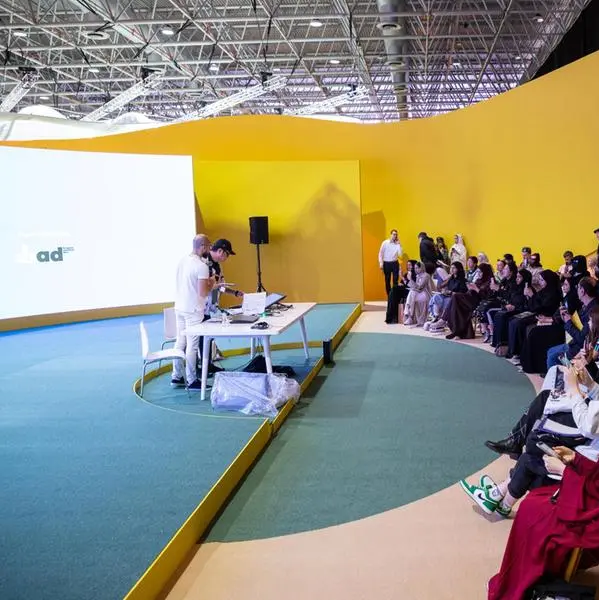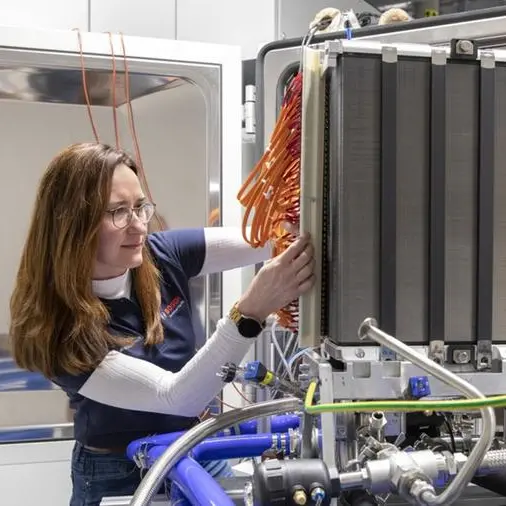PHOTO
Dubai, UAE: The Dubai Health Authority (DHA) displayed its Artificial Intelligence (AI) in diagnosing Eye Disease initiative during its participation in the UAE Innovation Month 2018.
The UAE Innovation Month, which is the largest celebration of its kind that seeks to celebrate the best in ideas on innovation from the government and private sectors as well as from the public, was organised under the directives of His Highness Shaikh Mohammad Bin Rashid Al Maktoum, Vice-President and Prime Minister of the UAE and Ruler of Dubai
This initiative aims to utilize an AI program to identify retinal damage from the thousands of eye scans fed into it, hence aiding doctors in diagnosing and treating patients who are suffering from retinal damage effectively and quickly.
The second phase of the Dubai Diabetes Survey 2017 revealed that the total prevalence of Diabetes amongst Emiratis in Dubai is 19 per cent, while the total of undiagnosed diabetes cases of Emiratis is 11 percent and the rate of pre-diabetic Emiratis is 18.6 per cent.
Dr M. Hamed Farooqi, Director of Dubai Diabetes Centre at DHA said along with this high prevalence of diabetes comes a high global prevalence of retinal damage as more than 93 million people are diagnosed with eye damage and 1 in 3 diabetics will develop diabetic retinopathy, according to international statistics.
Dr Farooqi said diabetic retinopathy is a diabetes complication that affects eyes. It's caused by damage to the blood vessels of the light-sensitive tissue at the back of the eye. At first, diabetic retinopathy may cause no symptoms or only mild vision problems. Eventually, it can cause blindness.
He said to diagnose diabetic retinopathy regular retinal imaging is required and in some cases optical coherence tomography is also used. This imaging test provides cross-sectional images of the retina that show the thickness of the retina, which will help determine whether fluid has leaked into retinal tissue.
Dr Farooqi said that usually seven pictures of each eye are needed to diagnose retinal damage, this means that doctors need go through thousands of scans to diagnose patients.
Dr Farooqi said that AI can ease this process. The Dubai Diabetes Center’s provided the images that were fed into an AI program developed by Artelus LLC a Dubai company focused in Cutting edge AI research in healthcare. These images were already diagnosed by the retina experts at Dubai Hospital and were compared with the diagnosis of the AI program and the accuracy of the program’s diagnosis of retinal damage reached 96 per cent of all referable cases in comparison. The more scans are fed to the program the more accurate the diagnosis will be. These positive results will be considered in possibly adopting this program at the center,” he said.
Dr Farooqi said adopting AI will allow patients to receive their results faster leading to early detection, which can result in the better management of the condition. He said that AI will also reduce the overall cost of managing the retinal complications.
Meanwhile, Pradeep Walia Co-Founder of Artelus LLC said that latest advances in AI would bring primary health screening to those most in need, and raise awareness in the masses. Early detection of Diabetic Retinopathy has shown to prevent blindness. By using AI and Machine Learning, and the use of cutting edge AI algorithms will enable the communities to offer large-scale screening at a fraction of the cost and save doctors a lot time.
-Ends-
About the Dubai Health Authority:
The Dubai Health Authority (DHA) was created, in June 2007, by Law 13 issued by His Highness Sheikh Mohammed bin Rashid Al Maktoum, Vice President and Prime Minister of the UAE, Ruler of Dubai, with an expanded vision to include strategic oversight for the complete health sector in Dubai and enhance private sector engagement. His Highness Sheikh Hamdan Bin Rashid Al Maktoum, Deputy Ruler of Dubai and UAE Minister of Finance is the President of the DHA and His Excellency Humaid Mohammed Obaid Al Qatami is the Chairman of the Board and Director-General of the DHA.
The DHA’s aim in Dubai is to provide an accessible, effective and integrated healthcare system, protect public health and improve the quality of life within the Emirate. This is a direct translation of the objectives of the Dubai Strategic Plan 2015 launched by His Highness Sheikh Mohammed bin Rashid Al Maktoum. Keeping the strategic plan in mind, the DHA’s mission is to ensure access to health services, maintain and improve the quality of these services, improve the health status of nationals, residents and visitors and oversee a dynamic, efficient and innovative health sector.
In addition to overseeing the health sector for the Emirate of Dubai, the DHA also focuses on providing services through DHA healthcare facilities including hospitals (Latifa, Dubai, Rashid and Hatta), specialty centres (e.g. the Dubai Diabetes Center) and DHA primary health centres spread throughout the Emirate of Dubai.
The main pillars of service delivery at DHA health facilities are quality, efficiency, patients and staff. It is our aim to maintain and improve the quality and efficiency of DHA health services. An important aspect of the service delivery strategy is to focus on patients, their needs and satisfaction as well as attract, retain, nurture and support outstanding staff.
Prior to the establishment of the DHA, the Department of Health and Medical Services (DOHMS), which was established in 1973, was the functioning authority that almost exclusively focused on health service delivery.
© Press Release 2018










